Celebrated novelist and playwright Harry Kalmer has died, at the age of sixty-two.
Kalmer passed away on 26 July 2019, after a short battle with cancer.
A memorial will be held on Friday, 16 August, at the Gazebo Room of the Killarney Country Club in Johannesburg. Proceedings will start at 2 p.m.
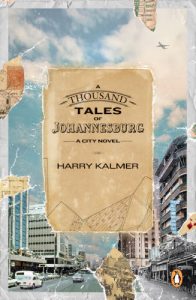
Kalmer was an exceptionally warm and thoughtful person, and a prolific and much-admired writer. He wrote mainly in Afrikaans, and, to the bemusement of his fans, received more acclaim for his plays than for his novels and short stories. Despite a certain cult following among his Afrikaans readers, Kalmer did not receive a major literary award for his prose until towards the end of his career, when he won the Barry Ronge Fiction Prize for A Thousand Tales of Johannesburg—his first novel in English.
Publisher and editor Frederik de Jager paid tribute to Kalmer’s writing, saying: ‘Outside of the average and the standard and the canon, Harry broke open his own literary tradition with his own bare hands. He was serious. He saw what others had overlooked.’ (Translated from the Afrikaans by The JRB.)
‘Brilliant writer, more brilliant person,’ wrote actor Anton Dekker. (Translated from the Afrikaans by The JRB.)
In an obituary for the Vrye Weekblad, author Marita van der Vyver hailed Kalmer as a ‘prophet’ who was ‘never truly honoured by his own people’:
It is probably because of his perpetual curiosity that his books were so different, not only from other Afrikaans writers, but also from one another. An author who cannot be put in a box is much more difficult to ‘market’ than one who writes the same type of book over and over.
Harry always had more of a cult status than an award-winning status in the Afrikaans book world. More loose cannon than literary canon, the arbiters of the literary taste apparently decided.
Not Afrikaans enough for Afrikaans readers—but when X-ray visagie en die vingers van God was translated as Killing Afrikaners, the book was considered too South African for foreign readers. You can’t make it up, can you?
Yet, from the beginning, there were Afrikaans readers who appreciated him, precisely because he was different and always surprised. One of the first Fan Pages I ever discovered on Facebook, in the earliest days of social media, was dedicated to Harry. The description was something along the lines of: ‘Harry Kalmer is the best writer in Afrikaans. Deal with that.’ (Translated from the Afrikaans by The JRB.)
Kalmer was born on 21 November 1956, in Belville, Cape Town, and moved to Johannesburg with his family at the age of three. He grew up in Florida, and began writing plays during his high school years. He went on to study at the University of Pretoria, and graduated in 1979 with a BA degree in Afrikaans–Nederlands and Drama.
Kalmer’s first published work was the short story ‘Die man wat deur ‘n opblaasmatras vermoor is’ (‘The man killed by an inflatable mattress’), which appeared in the May 1982 edition of the renowned journal Tydskrif vir Letterkunde, selected by the noted literary critic Elize Botha. Kalmer received a cheque of R1,38 for the story. ‘The amount was a projection of my future earning potential as a writer,’ he recalled wryly recently.
After university, Kalmer completed his two years of compulsory military service, and then worked in the South African Railways language bureau as a translator. He also travelled extensively in America and Europe. From the late nineteen-eighties he worked in advertising, and won a number of local and international awards over the years for his copywriting and arts journalism.
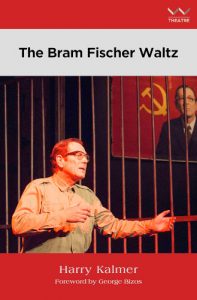
Kalmer’s plays were immensely popular on the festival circuit. His first, Bloed in die Strate, was produced by Jacqui Singer and performed at the Market Theatre in 1985. In 1990, he received the Dawie Malan Dalro Award for best new South African drama for Antjie Somers and I, while They say Heaven is like TV won the 1992 Vita Potpourri Merit Prize. In 2000, he won the FNB Vita Award for Die man met die dertien kinders, and in 2001 Briewe aan ’n rooi dak, a play based on the letters of Magdalena Otto and first performed at the Aardklop festival, received the Anglo-Gold Smeltkroes Prize for best new drama, and was subsequently adapted for television and broadcast. The Bram Fischer Waltz won both the Standard Bank Silver Ovation Award (2013) and the Adelaide Tambo Award for celebrating human rights through the arts (2014), and was published in both English and Afrikaans by Wits University Press in 2016.
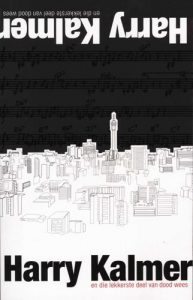
Kalmer’s 2007 novel En die lekkerste deel van dood wees was a runner-up in the Sanlam/Insig Groot Roman competition, and his short story ‘Luminosity’ was included in the photographic book Ponte City, which won the 2015 Deutsche Börse Prize, and which was published in the USA, Holland and the UK.
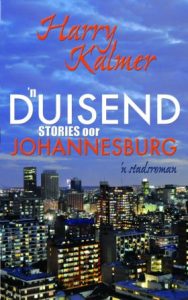
Kalmer’s most critically acclaimed work of fiction is his 2014 novel ’n Duisend stories oor Johannesburg: ’n stadsroman, which was shortlisted for nine literary awards, including the Groot Afrikaanse Romanwedstryd (as a manuscript), the Universiteit van Johannesburg Prys vir Skeppende Skryfwerk in Afrikaans, the ATKV-Prosaprys, the kykNET-Rapport Boekpryse (in both the fiction and film categories), and the WA Hofmeyr Prize for Afrikaans Fiction. The English edition, A Thousand Tales of Johannesburg, his first novel in English, and which he translated himself, was published in 2017, and won the 2018 Sunday Times Barry Ronge Fiction Prize.
In 2014, Kalmer completed an MA in Creative Writing from Stellenbosch University, under the supervision of Willem Anker and Marlene van Niekerk, and in 2016 he was awarded a writing fellowship from the Johannesburg Institute for Advanced Study. In 2018, he was shortlisted for the City Press Tafelberg Nonfiction Award for Requiem for a Joller, a proposed book on the life of anti-apartheid activist Marius Schoon.
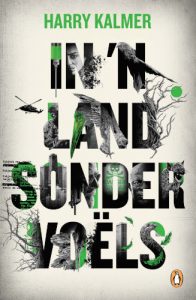
Kalmer’s last novel, In ’n land sonder voëls, was published earlier this year. Set in a dystopian future, in which politics has been privatised and democracy has made way for econocracy, rich European migrants flee south to South America, Australia and South Africa.
In March this year, at one of his last public appearances, Kalmer presented a seminar on the work of Breyten Breytenbach, titled ‘How to write in Afrikaans and still respect yourself in the morning’. In it, he reflected on the effect of coming of age as a white South African during apartheid:
To speak of a life in white apartheid South Africa as threatening, in the context of the horror that played out in the rest of the country, sounds melodramatic so many years later. But apartheid, like Saturn, also devoured its own children.
Citing Breytenbach’s poetry as one of the reasons he chose to write in Afrikaans, his mother’s language, rather than in English, his father’s, Kalmer writes:
I felt at an early age that apartheid was wrong, but I was not in an environment where I came into contact with people who shared my feelings. My experience as an officer on the border, where I sometimes bumped into Breyten’s brother Jan in our off-base pub, as well as my wife’s experience as a teacher during the unrest of the nineteen-eighties, finally made my path separate from the apartheid project.
But even though Afrikaans was inextricably part of that project, I never felt any resentment towards the language.
He concludes with a few lines from Breytenbach’s ‘Vlerkbrand’, a poem he says ‘haunted me for years, both here and abroad’:
when you think of your country
you see
we must be strong; guts full of craters and fliesWhen I wonder about my relationship with Afrikaans and why I started writing in it, I think of the poems of Breyten Breytenbach. Guts full of craters and flies. (Speech translated from the Afrikaans by The JRB, poetry as translated by Ernest van Heerden.)
Kalmer leaves behind his wife, Sanpat, and his two children. He will be greatly missed.
Harry Kalmer bibliography
Plays
1984 Bloed in die strate (176 interviews for television)
1986 Hartland/Hardland
1988 Die oë van hulle wit
1989 Antjie Somers and I
1991 Watercolour Days
1992 They say Heaven is Like TV
1992 The Secret of My Excess
1995 Frida Kahlo’s Eyes
1996 Sleeping with Alice
1998 Die dinge van ‘n kind
1999 Die man met die dertien kinders.
2001 The Bitterbek Blues of Ben (die Breker) Bartman
2001 Briewe aan ‘n rooi dak
2002 Paradysweg
2002 25 vrouens
2004 Oor die berge
2004 Wie is Spek Harmse en hoekom skryf hy Afrikaanse advertensies?
2005 Meneer de Beer
2006 Die vloek van die Strandjutwolf
2007 Wolke (translated)
2009 Parkamampoer
2011 Vlieger Unplugged
2012 Die Bram Fischer Wals
2013 The Bram Fischer Waltz
2017 Weg
Books
1989 Die waarheid en ander stories (Taurus) (short stories)
1993 X-Ray visagie en die vingers van God (Tafelberg)
1998 Die man met die dertien kinders (Queillerie)
1998 Kniediep (Human and Rousseau)
2005 Briewe aan ‘n rooi dak (Handmade book)
2006 Groceries: 56 Stories oor huishoudelike produkte (Lapa) (short stories)
2007 En die lekkerste deel van dood wees (Tafelberg)
2012 Vlieger en die gevare van die close dance (Queillerie) (short stories)
2014 ’n Duisend stories oor Johannesburg (Queillerie)
2017 A Thousand Tales of Johannesburg (Penguin)
2019 Die agste plaag (Handmade Book)
2019 In ’n land sonder voëls (Penguin)
Anthologies and other (contributor)
1986 Forces Favourites – A collection of anti-conscription stories and poems (Taurus)
1990 Vuurslag – an anthology of Afrikaans flash fiction (Tafelberg)
1996 Eeu – one hundred years of Afrikaans short stories (Tafelberg)
1998 Vonkfiksie – 46 award-winning Afrikaans short-short stories (Human & Rousseau)
2004 Die groot Afrikaanse kortverhaalboek (Tafelberg)
2007 Alles goed en wel – A selection of humorous Afrikaans short stories (Lapa)
2008 Meer Krag – An Afrikaans reader for first language high school learners (Oxford University Press)
2009 Sussie Veer is dood en ander verhale (Maskew Miller Longman)
2011 Donker Plekke – crime fiction anthology (Lapa)
2012 Die Afrikaanse skryfgids (Penguin)
2014 Ponte City (edited by Ivan Vladislavic) (Steidl Verlag)
2015 Public Intimacy: Art and Other Ordinary Acts in South Africa (Yerba Buena Center for the Arts San Francisco)
2016 Koshuis (edited by Erns Grundling) (Queillerie)

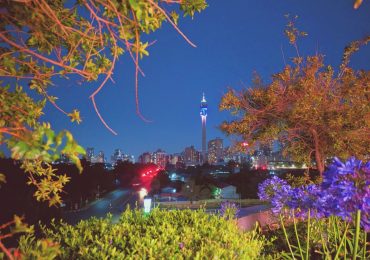
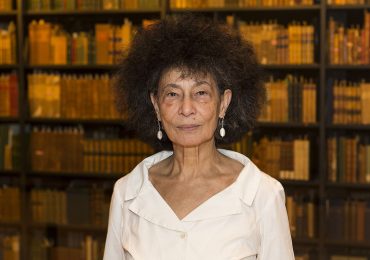
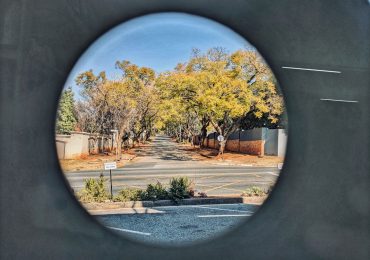


Lovely tribute. I think it’s worth mentioning that he published ‘The Story of Our Thirteen Children’ on Amazon in 2014, now free on Kindle Unlimited.